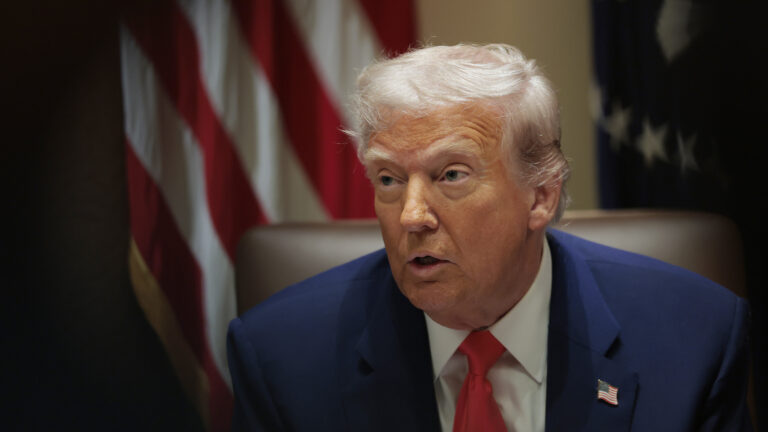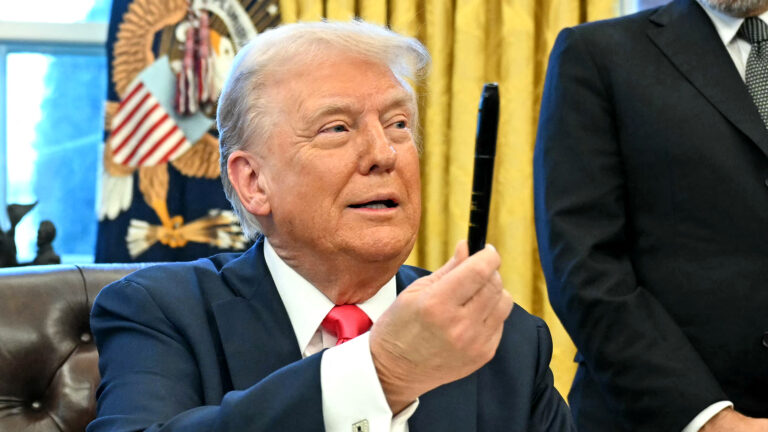When an authoritarian sets out to dismantle a democracy, they rarely begin with tanks in the streets. They start with the institutions that shape how a nation understands itself — its universities, its research labs, its spaces for free inquiry. In Hungary, Viktor Orbán perfected this slow-motion coup against knowledge. Now, the same playbook is being followed here by the Trump administration and Project 2025.
In Hungary, Orbán spent more than a decade reshaping universities and research institutes into extensions of his political machine. His seizure of the Hungarian Academy of Sciences’ research network in 2019 and the subsequent “foundationization” of public universities replaced the independent governance of these critical institutions with political appointees who often had lifetime terms. Some disciplines, such as gender studies, were banned outright. Research priorities were forcibly shifted toward politically approved agendas. If scholars dissented, they found their funding eliminated or their departments shuttered.
Currently the Trump administration, following the Heritage Foundation’s playbook, Project 2025, is echoing this script. Federal research funding to universities including Columbia, Harvard, Northwestern, and most recently Duke and UCLA was frozen in an effort to force ideological compliance. Anything deemed “DEI,” including women’s health, HIV, and health disparities research, has been targeted for elimination. The NIH, NSF, CDC, and NOAA face cuts so deep they would gut entire branches of fundamental science. As in Hungary, the attack is not just on “what” we research but “who” gets to decide.
These assaults on science and higher education are deliberate. The administration is moving to end independent research that threatens its ideological narratives and agendas. University campuses, with their diverse voices and global networks, are incubators of critical thought, and often dissent. By tightening control over funding, governance, and curricula, illiberal leaders can transform these institutions from watchdogs into echo chambers and megaphones for state ideology.
In Hungary, this has meant turning once world-class institutions into rubber stampers of official policy. The Central European University was forced to relocate most of its programs to Vienna. The resulting chill on academic life was the point: Scholars got the message about which topics were “safe.”

Private sector, philanthropy can’t replace Trump administration science cuts
In the U.S., Trump’s education and science agenda, as envisioned by Project 2025, aims for a similar end state. Public universities are beginning to see shared governance gutted, and private universities are being pressured to follow suit. Federal science agencies are being reshaped to serve “America First” priorities, sidelining research on climate change, reproductive health, and social inequality, among others. Most recently, in early August, Trump issued an executive order that funding agencies should ignore expert peer review and defer to political appointees on what to fund. The intent, as in Hungary, is to redefine knowledge as the servant of ideological power.
The results of Orbán’s policies have been disastrous for Hungary. Brain drain has accelerated — 1 in 4 early-career researchers is considering leaving. Over 37% of Hungary’s population decline in the last decade is due to emigration, much of it highly educated talent. E.U. sanctions have cut off access to Erasmus+ and Horizon Europe funding, severing international research partnerships. Innovation has slowed, and the nation’s competitiveness is slipping.
The same consequences are emerging in the U.S. Funding freezes and politically driven grant criteria are already disrupting research pipelines, driving young scientists abroad, and undermining America’s ability to lead in fields from biotech to artificial intelligence. Slashing NIH indirect cost rates from approximately 50% to 15% would devastate lab infrastructure. Harvard, Northwestern, and other institutions, like NOAA and the CDC, have been forced to freeze hiring and lay off staff in critical research sectors.
When governments politicize science, the damage ripples outward — shrinking innovation capacity, degrading higher education quality, and eroding a country’s economic future. In both Hungary and the U.S., the sectors under attack are the same ones that generate the technologies, medicines, and trained minds that sustain national prosperity and well-being.
Hungarian academics did not go quietly. Open letters, protests, and legal challenges kept public attention on Orbán’s actions, but the architecture of his “reforms” made them hard to undo. Currently in the U.S., faculty coalitions and university alliances are warning that the political capture of education and science are a direct threat to the republic.

Trump’s ‘gold standard’ order is a blueprint for politicizing science
Yet resistance has a shelf life. Once governance boards are stacked with loyalists and funding levers are rewired, reversal is difficult even after a change in government. Orbán understood this. Project 2025’s authors understand it, too.
The Orbánization of research and higher education is not just about one country or one leader. It’s a model of governance that masks its control in a veil of supposed legality and replaces open scientific inquiry with politically curated “truth.” It corrodes the ability of science to serve the public and erodes the democratic foundations that make that science possible. If this process is allowed to run its course — whether in Budapest or Boston — we will wake up to find the very institutions meant to speak truth to power can speak only what power allows.
The fight for science and universities is, at its core, a fight for democracy itself. Lose one, and you will lose the other.
Carole LaBonne, Ph.D., is past president of the Society for Developmental Biology and the Erastus Otis Haven professor of molecular biosciences at Northwestern University.
